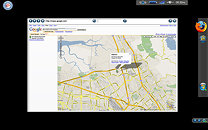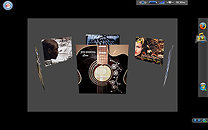Monday, November 5th 2007
Phoenix Planning to Bypass Windows
Phoenix Technologies, a company well-known for providing the BIOSes used by numerous motherboard manufacturers, is planning a new technology which could allow users to bypass Windows when launching regularly used applications. Known as HyperSpace, Phoenix wants to give users the ability to load software such as email clients, web browsers and media players without the need to first load Windows - this means the programs load almost instantly, saving the user quite a bit of time if they're in a hurry. The company eventually sees the potential for companies like Dell and Lenovo to ship PCs with a range of software from word processors to instant messaging pre-loaded so that they can be launched via HyperSpace with Windows only being required for the more complex applications and multitasking. This technology could also see a dramatic increase in battery life - when running using HyperSpace, some programs will use just half the power compared to when they are launched in Windows. Woody Hobbs, CEO of Phoenix Technologies, said the following:
Source:
Wired News
As Windows gets more and more complex, we've seen startup times get longer and longer. If I go to the airport and try to connect to a Wi-Fi network, I'm waiting for five minutes just to connect. That's ridiculous - people usually just give up and use their cell phones or PDAs.


42 Comments on Phoenix Planning to Bypass Windows
It's a lightweight distro of Linux, except it'll be built into the BIOS. Great idea, considering that if you can fit a Linux distro, including X Windows and a few apps into a BIOS chip, it'll boot in about eight seconds.
Bill Gates will not be pleased...:p. I can see open programs like Firefox and Open Office running on this built-in Linux, but I don't think we'll see proprietary stuff (like Crysis) running in this Linux environment.
An old idea...
But it is a good one.
1 question it will be only for laptops/notebooks why should i care? and it will be fast even if a instal a dvd player,spreadsheats,etc. a better idea is to be on a small partition of the hdd
Niiiice...